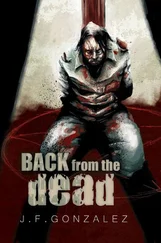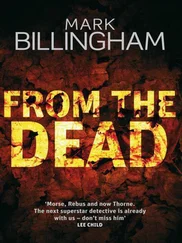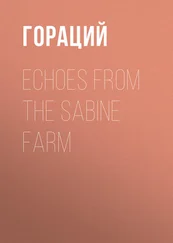“Here... somewhere near here.”
Nils looks around again, and begins to walk away from the Volvo.
Martin, who has hardly said a word all the way here, quickly catches up with him. He had lit a fresh cigarette as soon as he got out of the car, and he’s sucking on it now, his lips thin and tense. Gunnar joins them and walks alongside him.
Nils slows down, as if he were in no hurry. He wants both men in front of him, so he can keep an eye on them.
The fog is thicker than Nils can ever remember; actually, all he can recall is constant sunshine on the alvar when he used to go walking out here as a teenager. Now it feels as if he’s walking along the seabed in a pocket of air. He stops. Ten yards away the landscape has already been obliterated, the only color is grayish white, and every sound is muted. He is wearing only a thin sweater, a dark leather jacket, and jeans, and he’s freezing in the chilly air.
“Are you coming, Nils?”
Gunnar has stopped, too, and turned round. He’s just a big gray shape ahead of Nils, the outlines blurred like a charcoal drawing. His expression is difficult to read and impossible to interpret.
“We don’t want to lose you,” Gunnar says, but before Nils has caught up with him, he turns and sets off again, without waiting, striding out across the cowering grass.
Twilight is slowly falling across the alvar. It will be late before Nils gets home to his mother. Does she know he’s coming today?
Nils walks past a flat stone with uneven edges in the grass; it’s almost like a triangle, and all at once he recognizes it. Now he knows where he is.
“It’s more to the left,” he says.
Gunnar changes direction without saying a word.
Nils thinks he can hear a faint sound in the fog; he stops again and listens. A car on the village road? He listens hard, but hears nothing more.
They’re close now, but when Gunnar and Martin finally stop at a fairly big mound of grass, Nils still doesn’t think they’ve arrived. He can’t see the stones of the cairn anywhere.
“Here it is,” says Gunnar tersely.
“No,” says Nils.
“Yes.”
Gunnar kicks at the grass a few times, revealing the edge of a stone.
Only then does Nils realize that the memorial cairn doesn’t exist anymore. It’s been forgotten. No traveler has placed a stone on it to honor the dead for decades, and the yellow grass of the alvar has swallowed it.
Nils thinks about the last time he was here, when he hid the treasure. He was so young then, young and almost proud of having shot the soldiers out on the alvar.
Nothing has been right since then. Everything has gone wrong.
Nils points. “Here... somewhere here,” he says. “Dig here.”
He looks at Martin, standing there with the shovel in his hand, fumbling as he tries to get yet another cigarette into his mouth. Why is he so nervous?
“Get digging,” says Nils. “If you want the treasure.”
He steps aside and walks round to the other side of the cairn. Behind him he can hear a shovel being driven into the ground. The digging begins.
Nils gazes out into the fog, but nothing is moving. Everything is silent.
Behind him Martin has begun to dig a deep trench in the ground. His shovel has already struck several rocks, which Gunnar has had to remove with the pick, and he is red in the face. He is breathing heavily and looking nastily at Nils.
“There’s nothing down here,” he snarls. “Just rocks.”
“There must be,” says Nils, looking down into the hole. “This is where I hid it.”
But the hole is empty, he can see that — just as Martin says.
“Give me that,” says Nils crossly, reaching for the other shovel.
Then he begins to dig himself, with rapid, deep thrusts.
After a minute or so he sees the flat slabs of limestone he took off the cairn so long ago — the slabs he placed around the metal box to protect it.
They’re still there, blackened by the earth now, but the treasure is gone.
Nils looks up at Martin.
“You’ve taken the treasure,” he says quietly, taking a step closer to him. “Where is it?”
“Here we are,” said Lennart, switching off the engine of the police car. “What do you think of my little hideaway?”
“It’s lovely,” said Julia.
He’d turned onto a private drive a few kilometers north of Marnäs, driven slowly along between the trees, then stopped in a glade. The blue-gray sea lay ahead, and in front of it Lennart’s red-brick house and his little garden.
It wasn’t big, just as he’d said, but the location was wonderful. The only thing visible beyond the house was the sweeping expanse of the horizon. The neatly cut lawn sloped down toward the sea, almost imperceptibly blurring into a broad, sandy beach.
The bare trunks of the pine trees framed the garden like the walls of a church, providing shade and subduing any sound.
Once Lennart had switched off the engine, the silence had an air of solemnity about it; the only sound was the wind soughing in the treetops.
“The pine trees were brought in and planted, of course,” said Lennart, “but that was long before my time.”
They got out of the car, and with her eyes closed, Julia inhaled the scent of the forest.
“How long have you lived here?”
“A long time... almost twenty years. But I’m still very happy here.” He glanced around, as if he were looking around for the first time, then asked, “Are you allergic to cats? I’ve got a Persian called Missy, but I think she must be out somewhere.”
“No problem, I’m fine with cats,” said Julia, following him into the house on her crutches.
Its brick walls looked sturdy, as if no winter storm from the Baltic would ever be able to move them. Lennart unlocked the door and held it open for her.
“You’re not very hungry yet, are you?” he asked.
“No, I’m fine,” said Julia, walking into a small entrance hall that led into the kitchen.
Lennart wasn’t a fussy housekeeper, just tidy. The whole house was much neater than Julia’s little apartment in Gothenburg, with copies of Ölands-Posten tidily arranged in a wooden newspaper rack on the wall. The only clue to his profession was a few copies of the magazine Swedish Police in the same rack. There were several fishing rods in the hall, two or three plants in each window, and a well-stocked shelf of cookbooks above the stove in the kitchen.
Julia couldn’t see any beer cans or bottles of alcohol anywhere. She was pleased about that.
Lennart moved around switching on lamps in the windows of the big room beyond the kitchen.
“Do you want to go down to the shore,” he called out, “before it gets too dark? If we take an umbrella?”
“Love to, as long as I can manage on my crutches.”
Lennart laughed. “We’ll take it carefully. If you go out onto the point, you can see Böda on a clear day,” he said, adding, “You know, the bay with the big sandy beach.”
Julia smiled. “Yes, I know where Böda is,” she said.
“Of course you do. I forgot you were brought up here. Shall we go?”
She nodded, and glanced at the clock. A quarter past five.
“Do you mind if I use the phone first?” she asked.
“Of course not.”
“I’ll just give Astrid a quick ring and tell her where I am.”
“It’s on the countertop,” said Lennart.
Astrid always gave her number when she answered the phone, so Julia had learned it off by heart. She keyed it in quickly and heard the phone begin to ring. On the fifth ring Astrid picked up, with Willy barking furiously in the background.
“Julia,” she said when she realized who it was. “I was out at the back raking leaves. Where are you?”
Читать дальше












